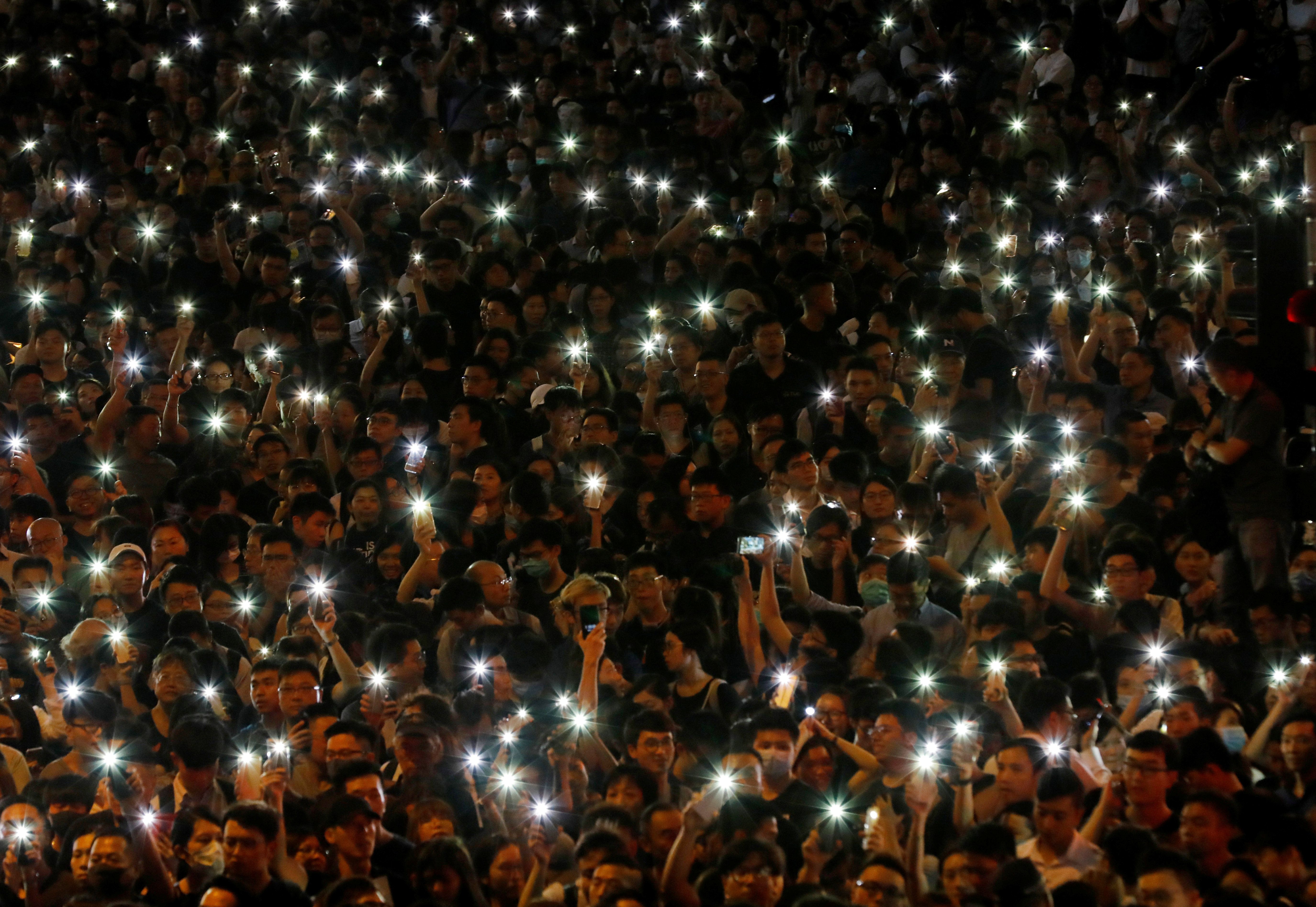August 20, 2019
America's internet giants are being pulled into political fights right and left these days. Speech – what can be said, and who can say it – is increasingly at the center of those controversies. Consider these two stories from opposite sides of the world:
On Monday, Twitter deleted hundreds of accounts and suspended 200,000 more that it said were part of a "significant state-backed information operation" to undermine the ongoing protests in Hong Kong. Facebook took similar measures against a smaller number of accounts. Such "de-platforming" has happened before with Russian and Iranian trolls, and US conspiracy theorists, but Twitter also went further, saying it would no longer allow state-controlled media organizations to place ads on its platform (The policy change, which came after some Chinese state-controlled news sides took out Twitter ads disparaging Hong Kong protesters, excludes taxpayer-funded and independent news outlets like NPR or the BBC). While Twitter will still allow government news outlets to get their messages out to people who follow them, it'll no longer give them an extra ad boost.
This marks a further change in how the tech industry sees its role in policing propaganda and misinformation on the internet. For years, industry executives tried to argue they had no business serving as referees and that it wasn't their responsibility to decide who should be able to say what online. The decision not just to expose and ban Chinese trolls, but to rein the reach of government-controlled news is a reminder of just how times have changed. From here on out, expect tech companies to take a narrower view of what speech they'll protect.
Similar political pressures are at work in the US, where the Trump administration has apparently been circulating a proposal that could weaken the protections granted to internet companies under the 1996 Communications Decency Act. That law is the reason why a newspaper can be sued for publishing libelous material, but Google can't. It's also why neo-Nazis can't sue Facebook for taking down videos of their marches. Without that law's protections, modern social media might not even exist.
There's growing bipartisan support for changing the law. Many Republicans are convinced (although evidence is scant) that Silicon Valley companies unjustly censor conservative political views, and they want to tweak liability rules to force the industry to treat the Right more fairly. Democrats, for their part, argue that the world's biggest websites aren't taking hate speech and other harmful content seriously enough. Weakening liability protections would force them to do more.
In both cases, as industry and politicians round on social media messages and practices they don't like, it seems increasingly clear that we've passed peak internet free speech. My question for our Signal readers, is: is that a good thing or a bad thing?
More For You
A photograph posted by U.S. President Donald Trump on his Truth Social account shows him sitting next to CIA Director John Ratcliffe as they watch the U.S. military operation in Venezuela from Trump's Mar a Lago resort, in Palm Beach, Florida, U.S., January 3, 2026.
@realDonaldTrump/Handout via REUTERS
Most Popular
- YouTube
In this "ask ian," Ian Bremmer analyzes Trump’s recent meeting with Zelensky and how close (or far) Russia and Ukraine are from a peace deal.
Syrian President Ahmed al-Sharaa attends the military parade of the Syrian army in Umayyad Square in central Damascus to mark the one-year anniversary of the fall of the Assad regime, on Dec. 8, 2025.
Mohammed Al-Rifai/dpa via Reuters Connect
A year ago this month, Syria’s brutal dictatorship collapsed. There are signs of recovery, but sectarian violence threatens to undermine the optimism.
© 2025 GZERO Media. All Rights Reserved | A Eurasia Group media company.
